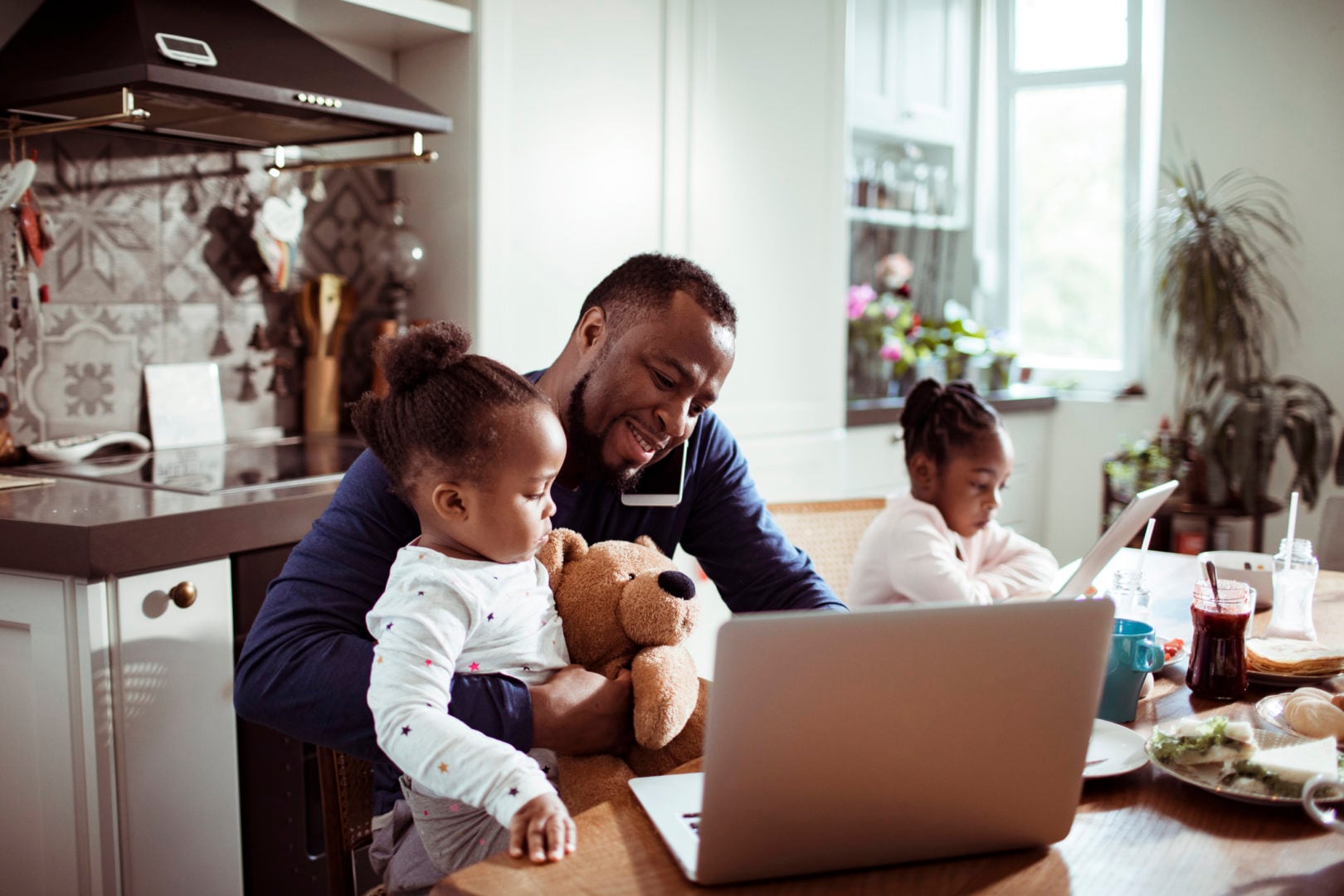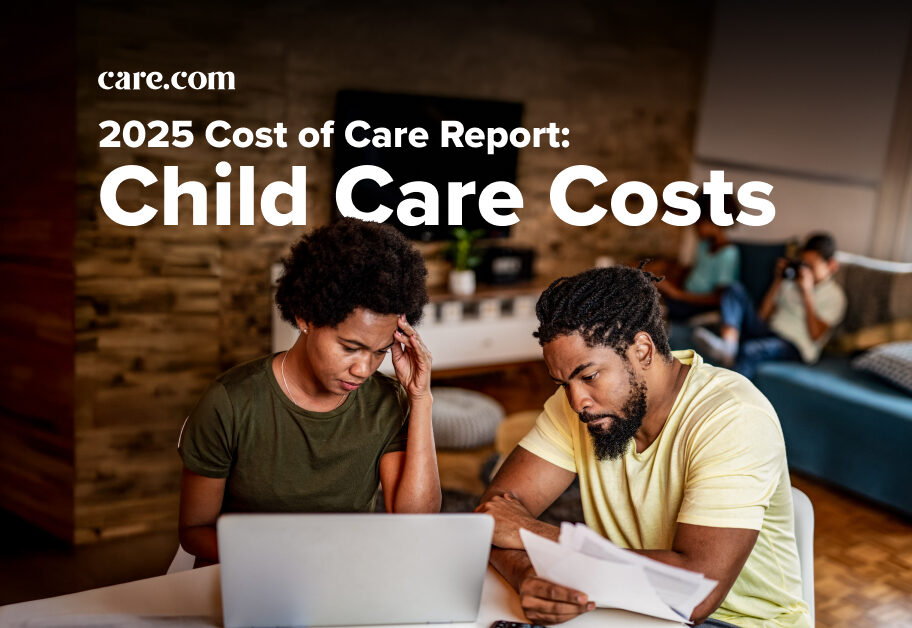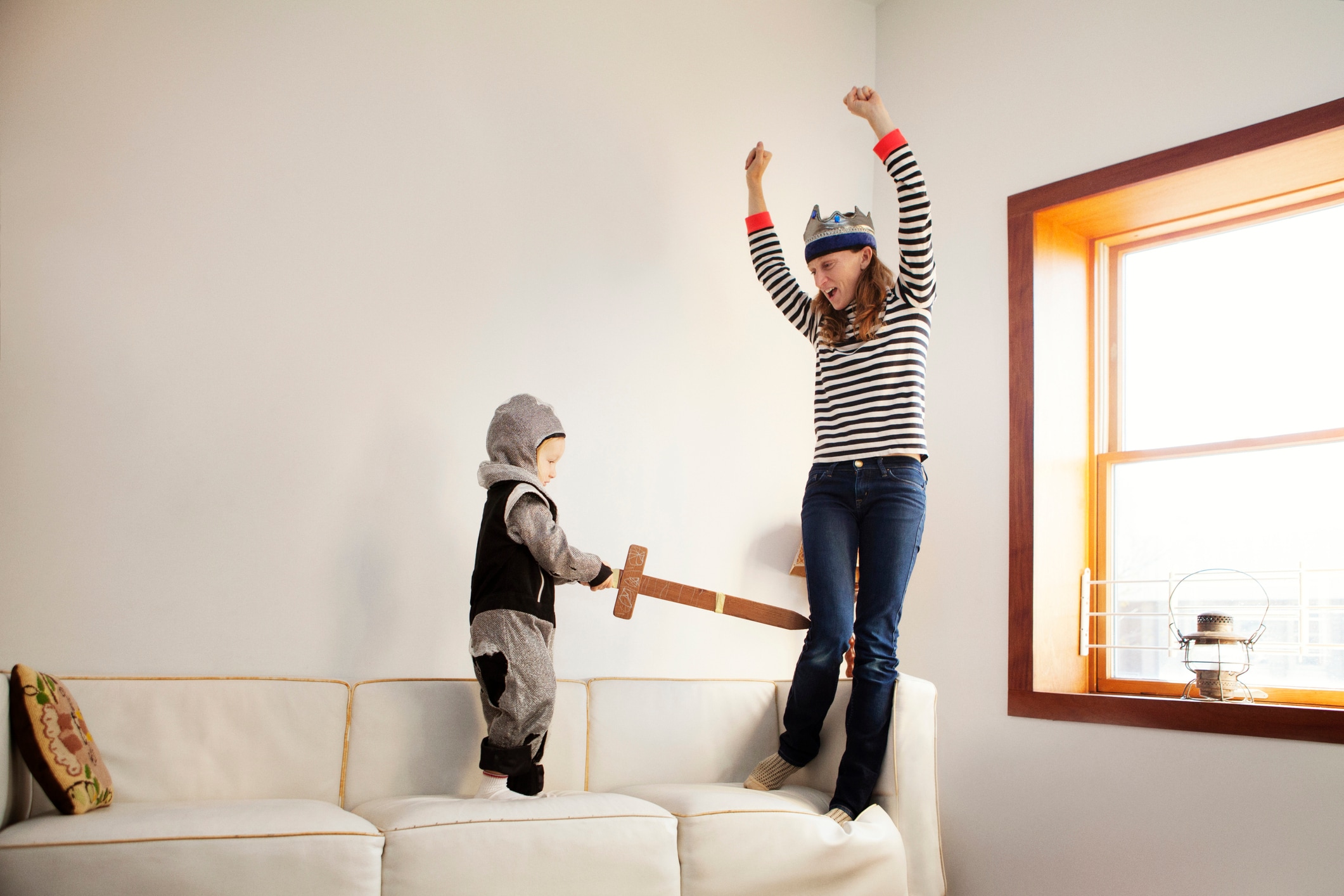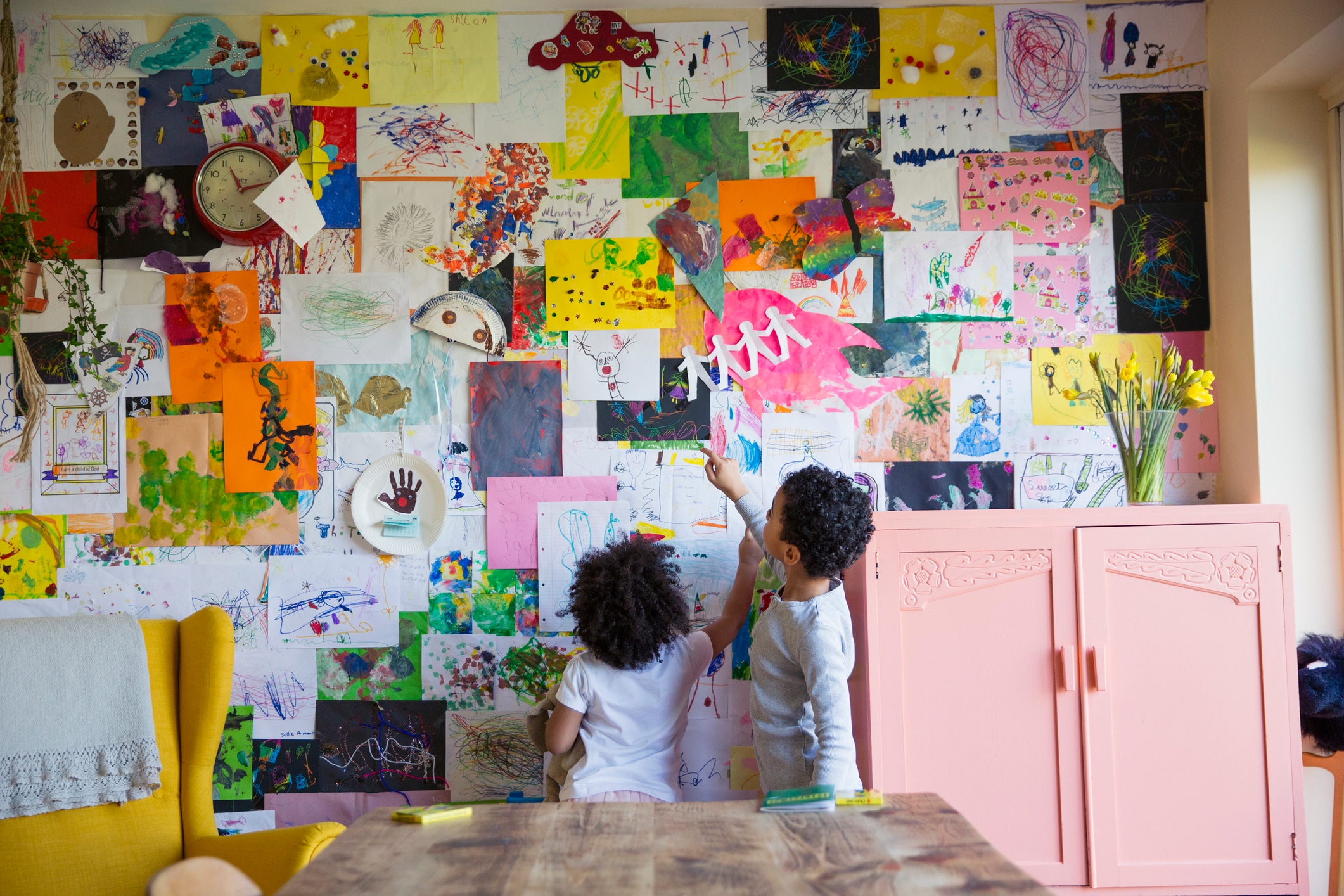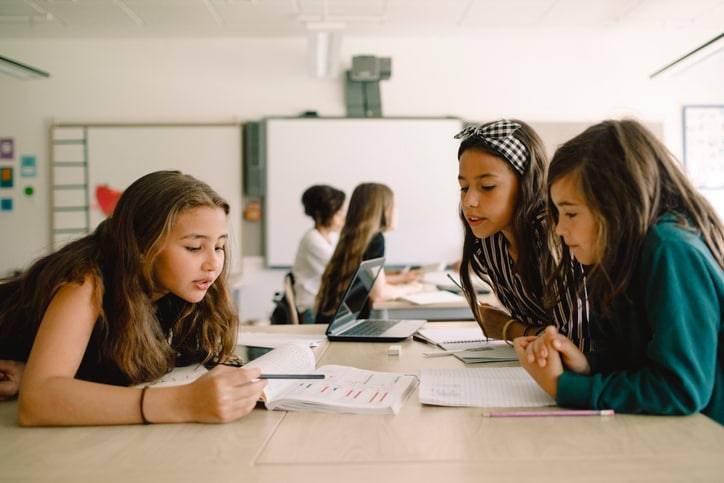There’s no question 2020 is a year most of us will be happy to put in our rearview mirrors, bidding bye bye to all those long months, which taxed parents at just about every turn.
The year taught us words like “hybrid school model,” tested the ability of moms and dads everywhere to work from home while assisting in their kids’ remote learning and made child care not only harder to pay for but impossible to come by at times. It was the year of worrying about grandma and grandpa catching COVID-19 and living life in masks and six feet apart. More than anything, though, it was the year of catastrophic job losses and a heartbreaking loss of life.
But should we really turn our backs on everything that happened in 2020 and run screaming? Well, maybe not.
When we asked parents if there’s anything they’d be taking with them from 2020 into the future, some of the answers surprised us. While no one is sad to see the year come to an end, dozens told us they’re determined to use what they learned this year to make life better for themselves, their kids and the world.
Maybe you can take a few of these parenting lessons with you, too?
1. It’s always a good day to learn something new
In a pre-COVID era, packed schedules meant a lot of focus on keeping kids moving from one thing to the next. But with plenty of downtime at home, 2020 became the year many families looked back to old school resourcefulness — sourdough starter, anyone? For parents, that meant taking time to incorporate more basic life skills into their children’s lives. Detroit, Michigan mom Amy Kuras decided in May that each member of her household — her two teenagers included — would start a project or learn a new skill. The result? Her son has brushed up on cooking and learned to repair his own bike while she’s started sewing her own clothes.
2. Kids can thrive with more downtime
The pandemic introduced something new to many families: empty schedules. With soccer practice canceled and karate classes off the agenda, many of us found big chunks of time had to be filled — and sometimes that meant seeing our kids in a whole new light. Mom Ramsay Hootman of El Cerrito, California says her family was used to dashing around to her 10-year-old’s various activities while her quieter 7-year-old simply tagged along. But the pandemic and its slower pace allowed Hootman to see and better meet her younger child’s needs, too.
“I’ve realized that the 7-year-old really needs downtime, and we need to make space for that just as much as my 10-year-old needs people,” Hootman says.
3. Perfect parenting is overrated
In recent years, Pinterest-style parenting has become the name of the game, with every valentine, birthday party and teacher gift planned out to the nth degree. But mom Grace Per Lee of Burlington, Vermont says that’s all over for her family.
“I’ve learned how to stop, take a breath and decide what I can let go of that day,” she says. “Maybe it’s something for work, maybe it’s cooking a real dinner, maybe it’s having a pie for Thanksgiving or a clean kitchen. Not everything is possible, and that’s OK. And I forgive myself for not being perfect. I’d tried that before but now … I really do it.”
4. Exercise does the family good
Gyms were shut down and kids’ sports and school P.E. programs upended in many towns and cities in the United States, but interest in exercise has remained higher than it’s ever been. That’s been a good thing for the whole family. With nothing but time on our hands, parents across the U.S. took the chance to start new routines from daily nature walks to more ambitious exercise regimens. Mom Sarah Snook of Savannah, Georgia says she now does daily runs with her 9-year-old.
5. Parenting doesn’t stop when you’re at work — and that’s OK
Working mothers have long faced bias in the workplace, and their ability to juggle career and parenthood is constantly called into question in a way it’s not for working dads. Then the pandemic came along and decimated the typical school day and many child care options and worsened the situation at home, particularly for moms. This has led to an estimated one in four women considering “downshifting” their careers or leaving the workforce to care for children due to the COVID-19 impact on schools and day cares. The news for working moms certainly sounds bleak, but there are some silver linings too.
With as much as 42% of the U.S. workforce now working from home, kids making noise in the background of meetings or popping their faces into Zooms has become part of the daily churn of corporate America. And with that has come empowerment for moms like Lauren Wellbank of Lehigh Valley, Pennsylvania, who says she’s “stopped acting like I don’t have kids when it comes to work.”
“Now, since they are inescapable, I’ll say: ‘Sorry, my 5-month-old is joining our call today,’” Wellbank says. “I’ve had my ‘BBC dad’ moments where they’ve come cruising in during a conference I was attending. Our house is small, and we’re always on top of each other. It’s ALWAYS been that way, so I’ve just stopped pretending it’s not. I’ve found that I’m rarely alone.”
6. Equal shared parenting is possible when work life is more flexible
For the first time in history, hundreds of thousands of households have two parents working at home at the same time. And for moms like Melissa Petro of New York City, that has meant a chance to really work with her spouse to divide child care and household labor more equitably. As a work-from-home parent, Petro was used to taking on the brunt of her kids’ care, but 2020 made it possible for her husband to work from home, too. “Now we take turns watching the kids while the other works,” Petro said. “We also share chores throughout the day and week. I would say it’s nearly equal, which is only possible with him working from home.”
7. It feels good to sit down to eat as a family
If you hadn’t sat around the dinner table as a family in awhile — because there used to be guitar lessons on Mondays and taekwondo on Tuesdays, and you worked late on Wednesdays, and then on Thursdays, everyone just grabbed cereal — well, then yours is a typical American family. Several moms told us they’re now able to get the whole family to sit down around the dinner table and swap stories about their day. Count this as another one of the side effects of all those canceled after-school activities, as well as the shuttered restaurants.
The good news is there are countless studies that have shown the benefits to sitting down for a daily meal with your kids.
8. Slow mornings are 100% worth it
Hectic mornings have been a part of parenting since time immemorial … or so it seems. But with many parents and their kids stuck at home, mornings are looking very different in many households. Nikki Fragala Barnes now starts every morning with snuggles and hellos for her kids while other moms share that they’re letting their kids catch a few more zzz’s in the morning and putting family breakfast back on the table.
9. Personal space is a necessity, not a luxury
Thousands of working parents still got up every morning and went to work in 2020. But when they weren’t working or grocery shopping, most moms and dads were home, spending a lot more time together with their families. For some moms, that meant finally putting themselves first and creating much-needed space for themselves at home. Kavin Senapathy of Madison, Wisconsin calls hers a “Kavin Cave” and admits she lets her kids in there … sometimes.
10. There’s no shame in prioritizing fun
Harrisburg, Pennsylvania mom Marissa Hoover was challenged to juggle a job and two remote schooling kids, but she says she realized she could let the struggle drag her down, or she could take the reins and make it work for her family.
The result? Everything is now an adventure for the Hoover kids. “Say ‘yes’ to the fun things and get the rest done later,” Hoover advises. “Life’s too short and all the responsibilities we put on ourselves can clearly be delayed or done differently.”
11. When everyone’s cranky, head to the woods (or at least outside)
The German language seems to have a word for just about everything. This was the year many parents got in touch with Waldeinsamkeit, even if they didn’t know it. This is the word German people use to describe how amazing it feels to be out in the woods alone. Hartford, Connecticut mom Brett Martin says this practice saved her family many times over in 2020.
Martin’s learning from this year is simple: “If people are cranky, drag them outside … including myself … hard to be cranky hiking in the woods for an hour.” Go ahead, give it a try!
